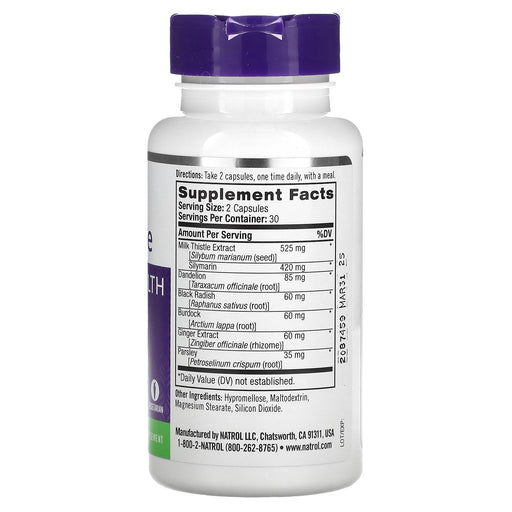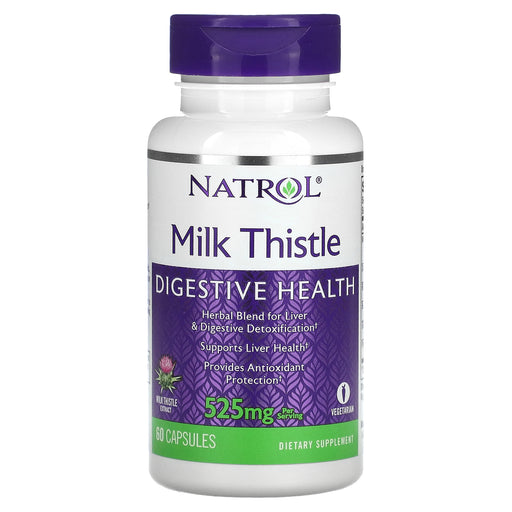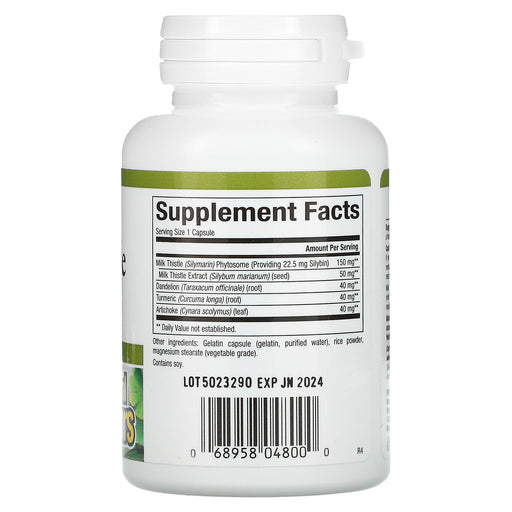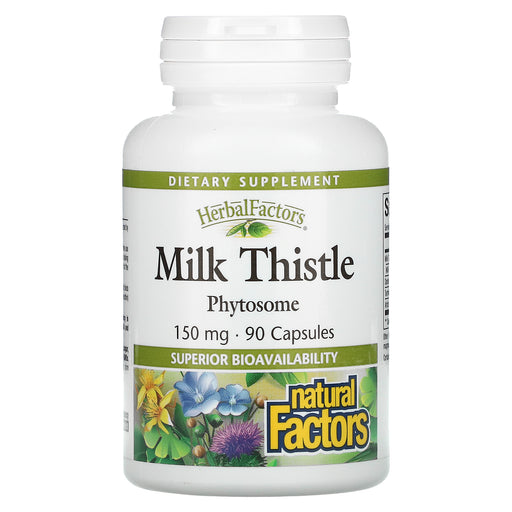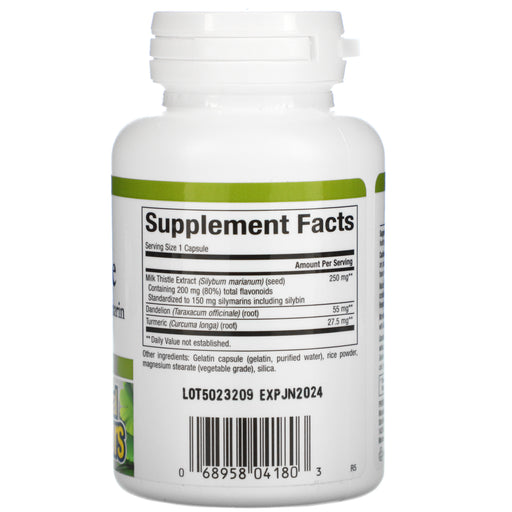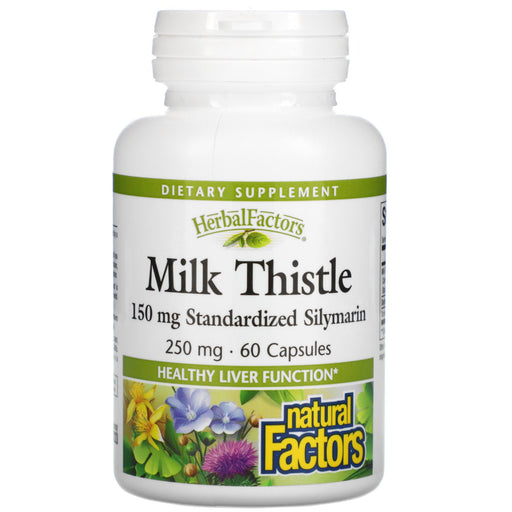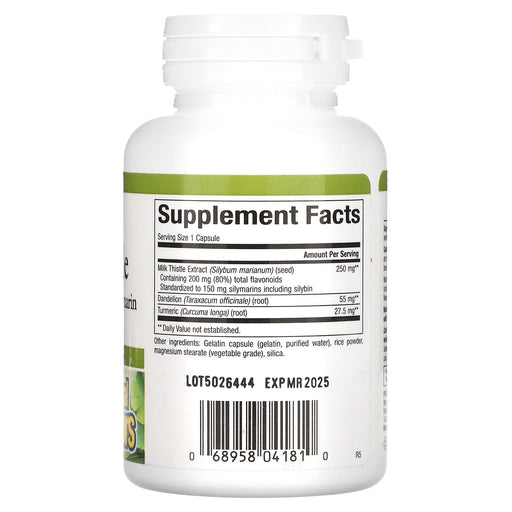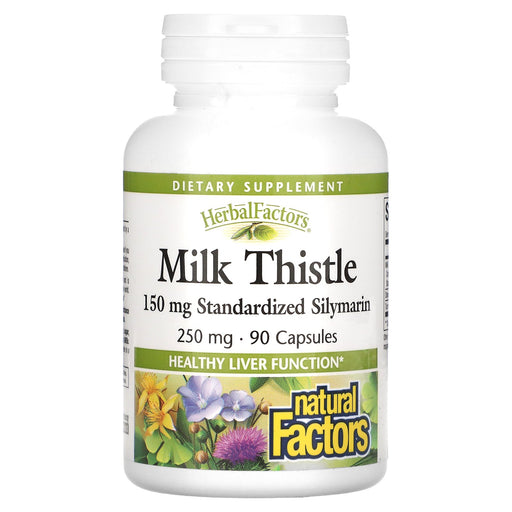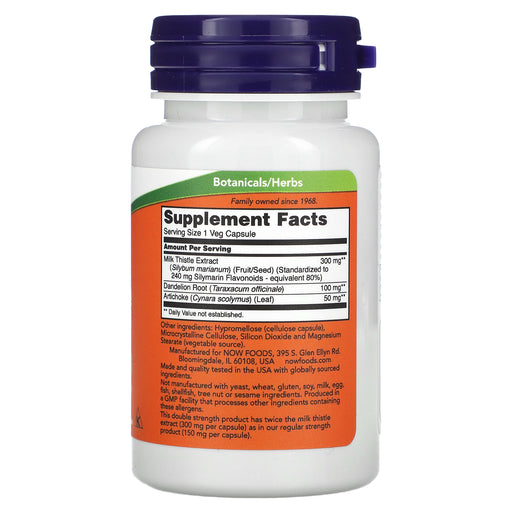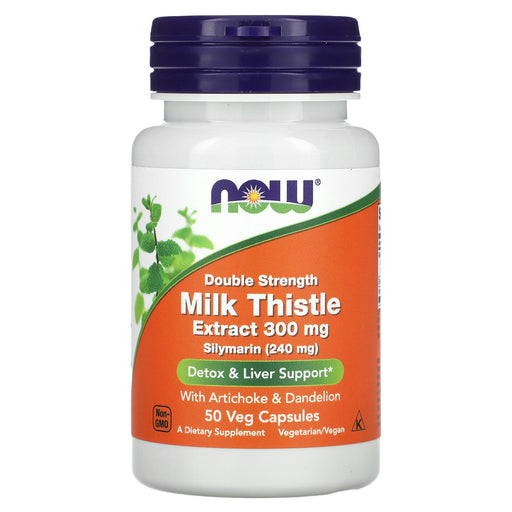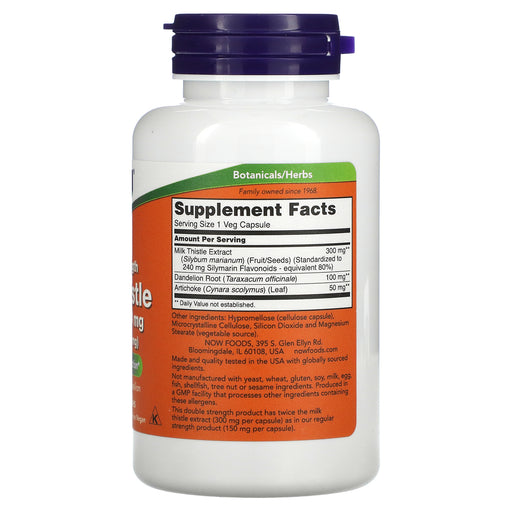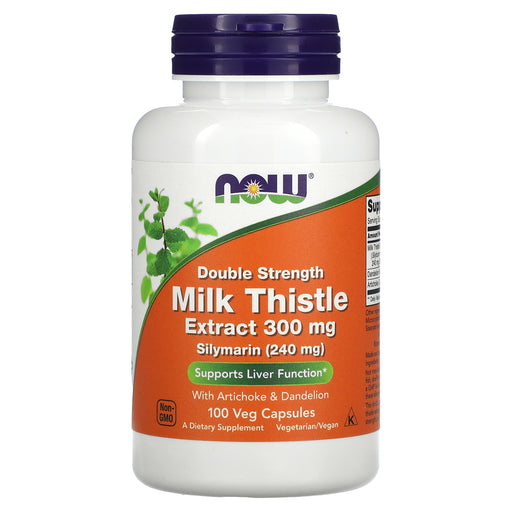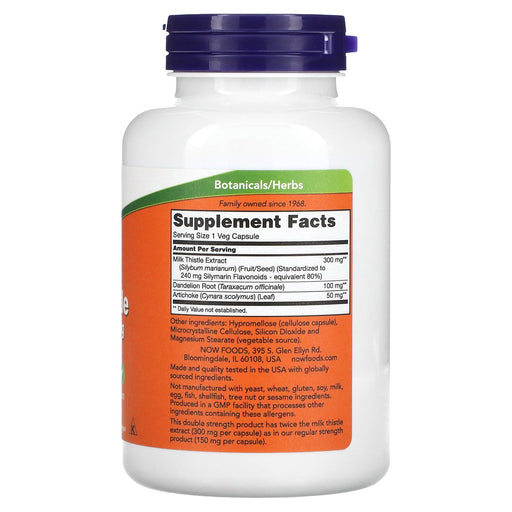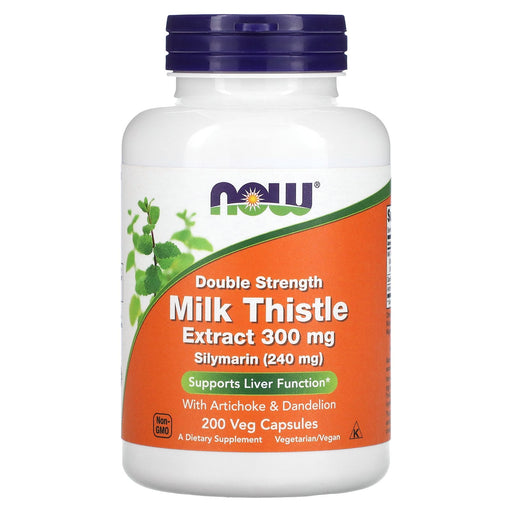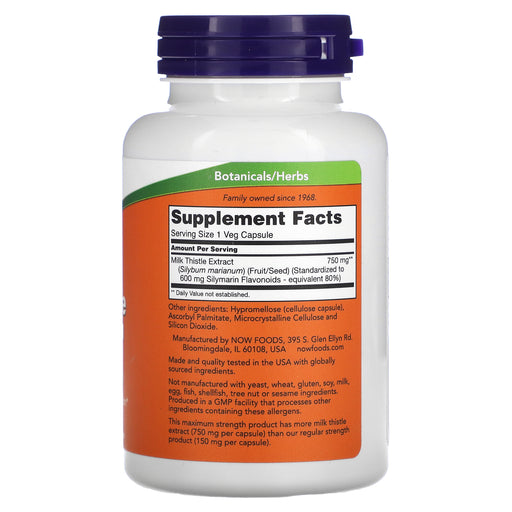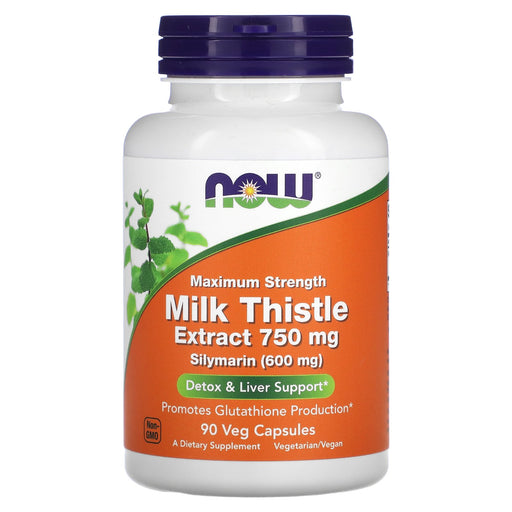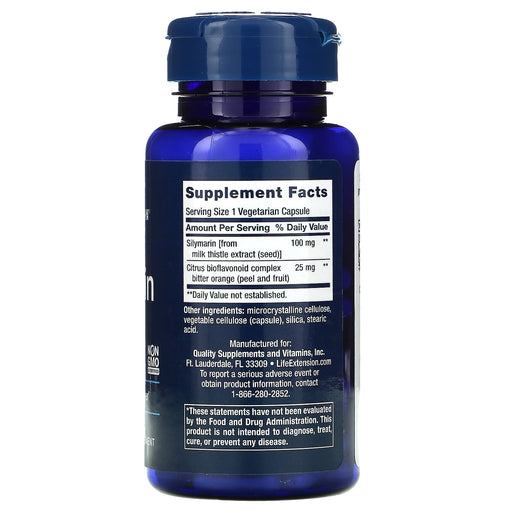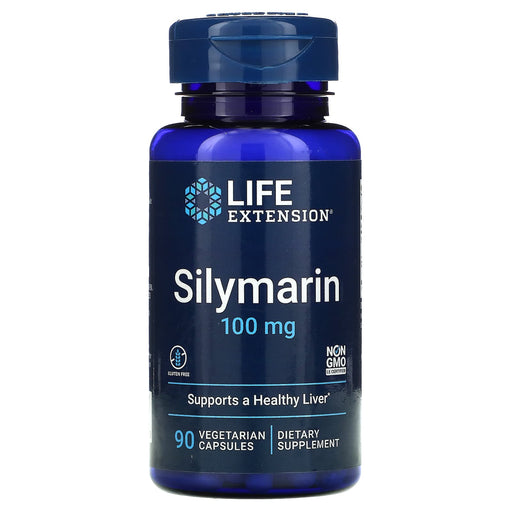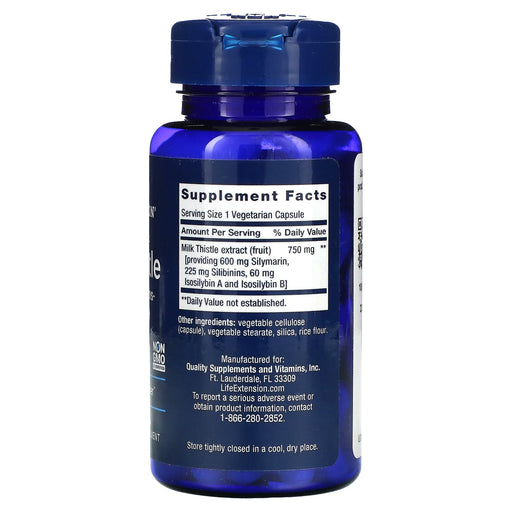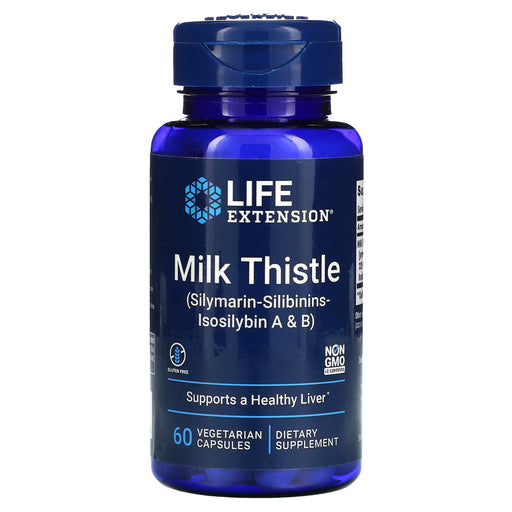
Harnessing the Liver-Protective Power of Milk Thistle (Silymarin) for Optimal Health and Detoxification
Milk thistle, a flowering herb native to the Mediterranean region, has been used for centuries as a natural remedy for liver health and detoxification. The active compound in milk thistle, silymarin, is a potent antioxidant and anti-inflammatory agent that has been extensively studied for its ability to protect and regenerate liver cells, support healthy liver function, and promote overall health and well-being. By incorporating milk thistle supplements into your wellness routine, you can harness the liver-protective power of this time-honored herb and support your body's natural detoxification processes for optimal vitality and resilience.
The Science Behind Milk Thistle's Liver-Protective Properties
Milk thistle's remarkable liver-supportive benefits can be attributed to its active compound, silymarin, which is a complex of flavonolignans, including silybin, silydianin, and silychristin. These compounds work synergistically to provide comprehensive support for liver health through several key mechanisms:
- Antioxidant Protection: Silymarin is a potent antioxidant that helps to neutralize harmful free radicals and protect liver cells from oxidative stress and damage.
- Anti-Inflammatory Effects: Milk thistle has been shown to possess anti-inflammatory properties, helping to reduce inflammation in the liver and throughout the body, which is a key factor in the development of many liver disorders.
- Liver Cell Regeneration: Studies have found that silymarin may help to stimulate the regeneration of liver cells, promoting the repair and recovery of damaged liver tissue.
- Toxin Blocking: Silymarin has been shown to help block the entry of toxins into liver cells, reducing the burden on the liver and supporting its natural detoxification processes.
- Bile Flow Support: Milk thistle may help to promote the production and flow of bile, which is essential for the digestion of fats and the elimination of toxins from the body.
The Potential Health Benefits of Milk Thistle Supplementation
The liver-protective and detoxifying properties of milk thistle have been linked to a wide range of potential health benefits, supporting not only liver health but also overall well-being. Some of the key benefits of milk thistle supplementation include:
- Liver Health Support: Milk thistle's ability to protect and regenerate liver cells, reduce inflammation, and support detoxification processes may help to promote optimal liver function and reduce the risk of liver disorders, such as fatty liver disease, cirrhosis, and hepatitis.
- Detoxification Support: By supporting the liver's natural detoxification processes and helping to block the entry of toxins into liver cells, milk thistle may help to enhance the body's overall detoxification capacity, reducing the burden of toxins and promoting optimal health.
- Digestive Health: Milk thistle's role in supporting bile production and flow may help to improve digestion, particularly the digestion of fats, and reduce the risk of digestive issues such as gallstones and indigestion.
- Antioxidant Protection: The potent antioxidant properties of silymarin may help to protect cells throughout the body from oxidative stress and damage, supporting overall health and reducing the risk of chronic diseases.
- Immune Support: Some studies suggest that milk thistle may help to support immune function by reducing inflammation and oxidative stress, which can burden the immune system and compromise its ability to defend against pathogens and disease.
Choosing the Right Milk Thistle Supplement
When selecting a milk thistle supplement, it's essential to choose a high-quality product from a reputable brand that contains a standardized extract of silymarin. Some key factors to consider include:
- Standardized Silymarin Content: Look for supplements that provide a standardized amount of silymarin, typically ranging from 70-80%, to ensure consistent potency and efficacy.
- Purity and Quality: Choose supplements that are manufactured in GMP-certified facilities and undergo rigorous testing for purity, potency, and safety.
- Bioavailability: Consider supplements that use advanced delivery technologies, such as liposomal or phytosome forms of silymarin, to enhance absorption and bioavailability.
- Brand Reputation: Select supplements from trusted brands with a history of producing high-quality, science-backed products that prioritize transparency, safety, and efficacy.
As with any new supplement regimen, it's essential to consult with a healthcare professional before starting milk thistle supplementation, especially if you have a pre-existing liver condition, are pregnant or nursing, or are taking medications that may interact with milk thistle.
Related Vitamins and Supplements
While milk thistle is a powerful liver-supportive and detoxifying herb on its own, certain vitamins and supplements can complement its benefits and support overall liver health and function. Some relevant options to consider alongside milk thistle include:
- N-Acetyl Cysteine (NAC): This amino acid is a precursor to glutathione, the body's master antioxidant, and has been shown to support liver health and detoxification processes.
- Alpha-Lipoic Acid (ALA): This potent antioxidant helps to protect liver cells from oxidative stress and supports the body's natural detoxification pathways.
- Turmeric or Curcumin: These powerful anti-inflammatory and antioxidant compounds have been shown to support liver health, reduce inflammation, and enhance detoxification processes.
- B Complex Vitamins: These essential vitamins, particularly vitamin B12 and folate, play crucial roles in liver function, detoxification, and overall cellular health.
Experience the Liver-Protective Power of Milk Thistle
At Health Orchard, we are dedicated to providing our customers with the highest quality milk thistle supplements to support liver health, detoxification, and overall well-being. Our carefully curated selection features milk thistle products from trusted brands, formulated with standardized silymarin extracts and advanced delivery technologies for optimal efficacy and bioavailability.
Whether you're looking to support optimal liver function, enhance your body's natural detoxification processes, or promote overall health and vitality, our milk thistle supplement collection has the perfect product to meet your unique needs and goals.
Witness the time-honored, liver-protective power of milk thistle and experience the difference it can make in your journey towards optimal health and vitality. Browse our selection today and take the first step towards supporting your liver health and overall well-being with this remarkable botanical.
Frequently Asked Questions about Milk Thistle (Silymarin)
1. What is silymarin milk thistle used for?
Silymarin, the active compound in milk thistle, is primarily used for its liver-protective and regenerative properties. It is commonly used to:
- Support liver health and function
- Help protect the liver from toxins and oxidative stress
- Aid in the regeneration of liver cells
- Support the management of liver conditions, such as cirrhosis, hepatitis, and fatty liver disease
Silymarin is also known for its antioxidant and anti-inflammatory properties, which may provide additional health benefits.
2. Is it okay to take milk thistle every day?
Milk thistle is generally considered safe for most people when taken in recommended doses. Many people take milk thistle daily as a liver supportive supplement. However, it's essential to follow the dosage instructions on the product label or consult with a healthcare professional for personalized guidance. Long-term use of milk thistle should be monitored, as it may interact with certain medications and may not be suitable for everyone. If you have a pre-existing medical condition or are taking medications, consult with a healthcare professional before starting a milk thistle supplement regimen.
3. Does milk thistle really cleanse the liver?
Milk thistle is known for its liver-supportive properties, but it does not directly "cleanse" the liver. Instead, silymarin, the active compound in milk thistle, helps support liver function by:
- Protecting liver cells from damage caused by toxins and oxidative stress
- Stimulating the regeneration of liver cells
- Reducing inflammation in the liver
These actions help support the liver's natural detoxification processes and overall health. However, it's important to note that milk thistle should not be relied upon as a sole "liver cleanse" solution, and a healthy lifestyle, including a balanced diet and regular exercise, is crucial for maintaining liver health.
4. Who cannot take milk thistle?
While milk thistle is generally considered safe for most people, some individuals should avoid or use it with caution:
- Pregnant and breastfeeding women, due to limited safety data
- People with a history of hormone-sensitive cancers, such as breast, uterine, or prostate cancer, as milk thistle may have estrogenic effects
- Individuals with ragweed allergies, as milk thistle may cause an allergic reaction
- People with diabetes, as milk thistle may lower blood sugar levels
- Those taking certain medications, such as antipsychotics, statins, or blood thinners, as milk thistle may interact with these drugs
It's always best to consult with a healthcare professional before starting a milk thistle supplement, especially if you have a pre-existing medical condition or are taking medications.
5. Is milk thistle bad for kidneys?
Milk thistle is generally not considered harmful to the kidneys when taken in recommended doses. In fact, some studies suggest that silymarin, the active compound in milk thistle, may have potential kidney-protective properties due to its antioxidant and anti-inflammatory effects. However, more research is needed to fully understand the impact of milk thistle on kidney health. If you have a pre-existing kidney condition or are taking medications that affect kidney function, it's essential to consult with a healthcare professional before taking milk thistle to ensure it is safe for your specific situation.
6. What are the negative side effects of milk thistle?
Milk thistle is generally well-tolerated, and side effects are rare when taken in recommended doses. However, some people may experience mild side effects, such as:
- Digestive discomfort (e.g., nausea, diarrhea, or upset stomach)
- Headache
- Itching or skin rash (rare)
In rare cases, milk thistle may cause more severe side effects, such as anaphylaxis (a severe allergic reaction) in people with allergies to plants in the Asteraceae family (e.g., ragweed, daisies, or marigolds). If you experience any concerning side effects after taking milk thistle, discontinue use and consult with a healthcare professional.
7. Can silymarin treat fatty liver?
Silymarin, the active compound in milk thistle, has shown promise in supporting the management of fatty liver disease. Some studies suggest that silymarin may help:
- Reduce inflammation in the liver
- Decrease oxidative stress
- Improve insulin sensitivity
- Support the liver's natural regeneration processes
These actions may be beneficial for individuals with non-alcoholic fatty liver disease (NAFLD). However, while silymarin may be a helpful adjunct treatment, it should not be relied upon as a sole treatment for fatty liver disease. A comprehensive approach, including a healthy diet, regular exercise, and medical supervision, is essential for managing this condition.
8. How long should I take silymarin?
The duration of silymarin supplementation may vary depending on the individual and the specific health goals. Some people may take silymarin for short-term liver support, while others may use it long-term for managing chronic liver conditions. However, it's essential to follow the dosage instructions on the product label and not exceed the recommended daily intake. If you plan to take silymarin for an extended period, it's best to consult with a healthcare professional to ensure it is safe and appropriate for your specific situation and to monitor your liver health through regular check-ups and blood tests.


